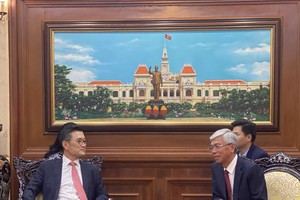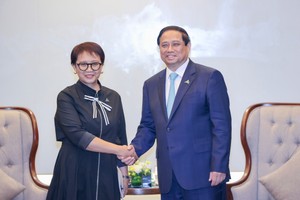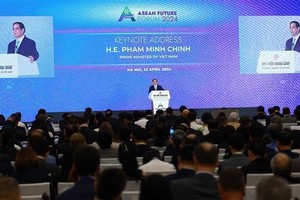Nepal's political leaders have agreed to integrate thousands of former Maoist rebels into the army, finally concluding a peace deal five years after the end of a civil war that claimed 16,000 lives.

The historic breakthrough on the status of 19,000 rebel fighters, who have been confined to camps since the end of hostilities, raises hopes that the political deadlock on drafting a new constitution can finally be broken.
Nepal, an impoverished Himalayan nation, has had a barely functioning government since the end of the 10-year conflict in 2006 and the abolition of the unpopular monarchy in 2008.
Lawmakers in the constituent assembly, where the Maoist party is the biggest group but does not have a majority, have wrangled for three years over the peace deal, sapping the euphoria and optimism seen at the end of the fighting.
Kathmandu-based political commentator Prashant Jha called the announcement "a truly historic deal."
"After more than three years of prolonged political deadlock which almost derailed Nepal's transition, parties have finally managed to get the peace and constitutional process back on track," he said.
Under the agreement struck late Tuesday, the army will take in 6,500 former fighters and the remainder will receive a pay-off of between 500,000 and 800,000 Nepali rupees ($6,300-$10,200).
A statement from Prime Minister Baburam Bhattarai said agreement had been reached "on issues relating to the integration of former Maoist combatants into the security forces and providing support to victims of the conflict".
The United States hailed the deal as a "landmark" and called on leaders to implement its terms and turn the page on a lengthy political deadlock.
"We commend all parties for their statesmanship and leadership in forging this consensus, which we believe is a crucial step toward ensuring a democratic, stable and prosperous future for Nepal," State Department spokeswoman Victoria Nuland said in a statement.
The four major parties of Nepal had spent two days debating the deal.
They also agreed that weapons used by former Maoist fighters would be handed in to the state, a "peace and reconciliation commission" would be formed within a month, and land seized by the Maoists would be returned to its original owners.
Attention will now turn to completing a new constitution, which will aim to enshrine the rights and equality of the country's 26-million mostly Hindu inhabitants.
The parties agreed to stick with a November 30 deadline for completing it, though many observers expect this target to be difficult to meet.
The constituent assembly has been extended three times after failing to reach a consensus on the document, which will pave the way for fresh elections and, it is hoped, to post-war development.
"The agreement we signed yesterday is a milestone in our efforts to conclude the peace and constitution-making process," Finance Minister Barsha Man Pun, of the Maoist party, said.
"The current government will continue until the peace process concludes and the constitution is promulgated.
"Some leaders of our party have expressed dissatisfaction over the deal. We will resolve this though debate and the party will not split."
Ram Bahadur Thapa, a senior member of a hardline faction of the Maoist party, told reporters the deal was "against the will of the Nepali people" and it would not be helpful in concluding the peace process.
























